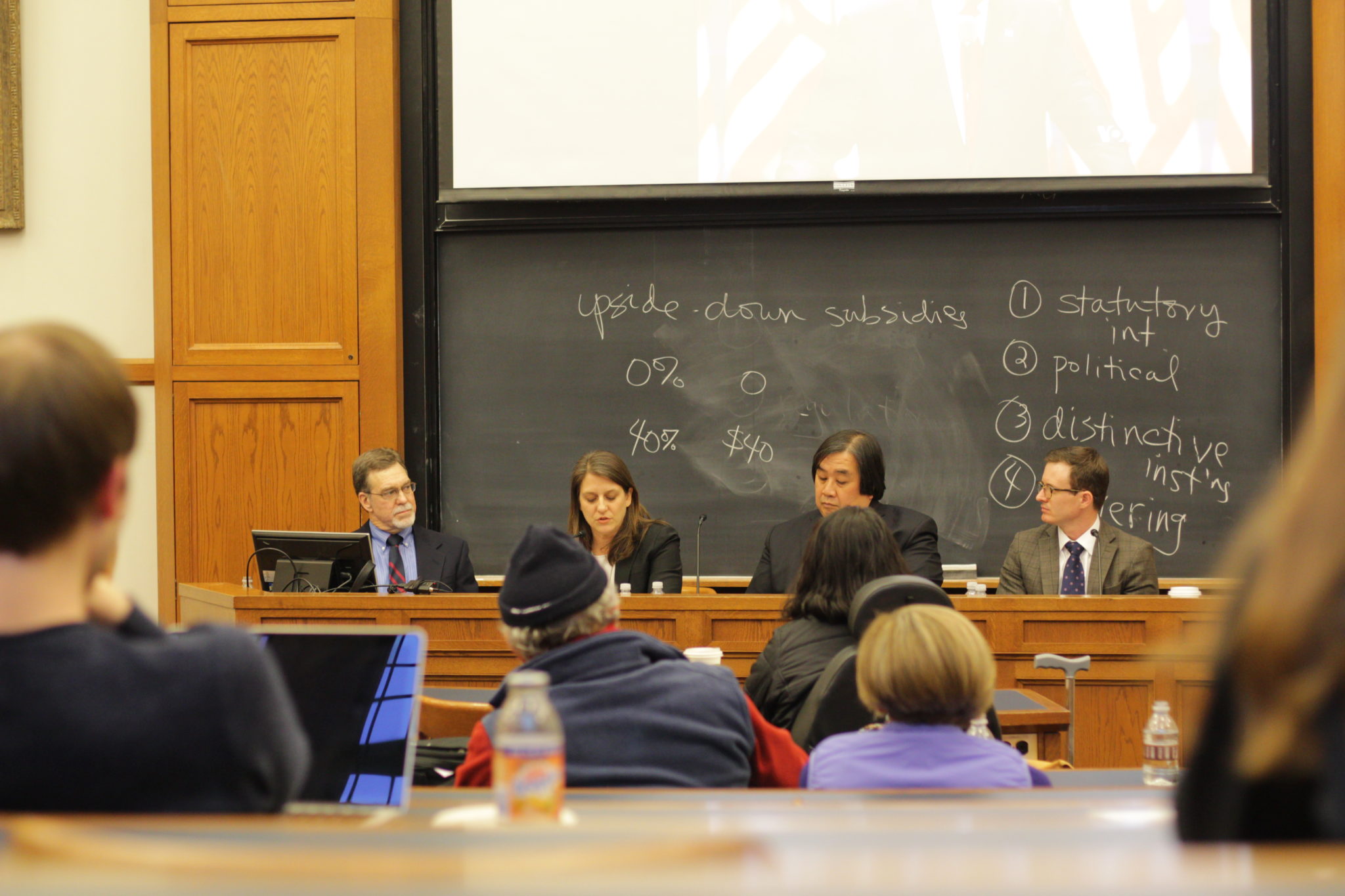
Yale faculty members and experts discussed policy concerns pertaining to North Korea’s growing nuclear arsenal at a panel event on Wednesday afternoon in the Sterling Law Building.
The event — which was held by the Yale International Relations Association and sponsored by the Union of Concerned Scientists, Yale Law School and the Yale Science Diplomats — featured a number of renowned speakers, including former Law School Dean Harold Koh and Mira Rapp-Hooper, a senior research scholar in law at the Law School, and David Wright, the co-director of the Global Security Program in the Union of Concerned Scientists. Executive Director of the Paul Tsai China Center at the Law School Robert Williams moderated the discussion.
Panelists discussed the lack of viable military options available to the U.S. due to its limited ability to isolate itself, coupled with the rapid advancements of North Korea’s nuclear program. But the experts said they remain optimistic that the U.S. can successfully pursue a diplomatic strategy.
“Don’t deny the realities, but put the technical realities of North Korea’s nuclear programs front and center as we start to develop a serious strategy that’s based on containment, deterrence, diplomacy and other essential elements,” Rapp-Hooper said.
Each panelist spoke for about 10 minutes and fielded Williams’s questions, after which the speakers fielded questions from the audience.
As the first panelist, Wright stressed the advanced state of the North Korean nuclear program, which has produced missiles with trajectories that could, in theory, extend as far as Chicago and Washington, D.C.
“There seems to have been a decision … to put money into this field, to try and really develop their missile engineering capability and to develop not only longer range missiles, but a surprising number of different types of missiles,” Wright said. “And one of the things that’s been surprising in the last year and a half is not only how many tests they’ve done … [but] how many were successful and how many different types.”
In the 1980s, the Soviet Union aided North Korea in building a small reactor. After the demise of its benefactor, North Korea continued to develop a nuclear arsenal, first carrying out a nuclear test in 2006, which was unsuccessful. However, since Kim Jong Un came to power in 2011 after his father’s death, the country has accelerated its nuclear program, carrying out more frequent — and successful — tests.
In an interview with Sean Hannity on Fox News last October, President Donald Trump claimed that U.S. missile defense capabilities would have a 97 percent success rate.
But the panelists disagreed.
“Missile defense is one of those ideas that sounds better after 30 seconds than it does after 30 minutes,” said Laura Grego, senior scientist at the Global Security Program within the Union of Concerned Scientists.
According to Grego, the expected conditions of a nuclear attack would, in fact, give any defensive measures an uncomfortably high rate of failure — 28 to 50 percent.
Leila Chang ’19, who attended the event because of her interest in its organizers, said she was persuaded by Koh’s emphasis on the importance of diplomacy.
“It’s something that you really need to buy into and believe over the long term, which I think will be hard for people,” Chang said. “I think [it is] very different from the administration’s perspective.”
The Paul Tsai China Center at the Yale Law School was founded in 1999.
Carly Wanna | carly.wanna@yale.edu







